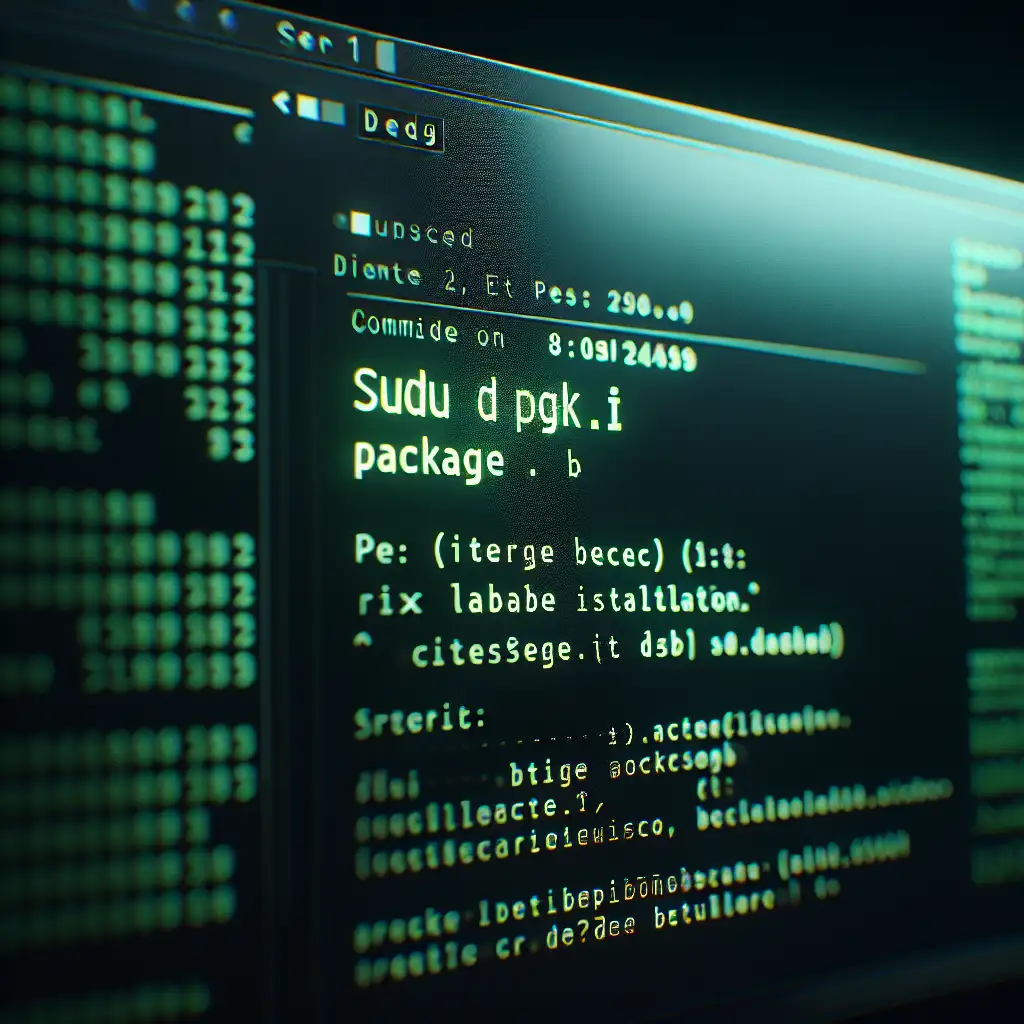Mastering Debian Package Installation: Confidently Installing .deb Files on Linux
Software distribution on Debian-based systems hinges on .deb files—bundles that encapsulate binaries, metadata, pre/post-install scripts, and dependency specifications. While GUI tools abstract most edge cases, direct interaction with .deb files exposes the actual mechanics—and the inevitable quirks—of package management.
Most engineers will eventually need to install software not present in standard repositories: vendor builds, legacy applications, or custom packages. Understanding the workflow for .deb installation streamlines your troubleshooting and keeps your environment maintainable.
Anatomy of a .deb Package
.deb files (Debian package archives) are ar-formatted containers. Internally:
control.tar.gz—metadata, maintainer scripts (likepreinst,postinst)data.tar.xzordata.tar.gz—actual files/folders delivered to the systemdebian-binary—format version
Knowing this is useful; sometimes packages intentionally execute pre/post scripts you’ll want to audit before install:
dpkg-deb --info ./example.deb
dpkg-deb --control ./example.deb ./control-dir
cat ./control-dir/postinst
Note: Skipping this inspection on vendor binaries opens you to supply chain risk.
Why not just double-click?
GUIs like Ubuntu Software Center or GDebi abstract details but often mute specifics—error handling, script failures, and dependency resolution. For example, dependency deadlocks from non-standard PPAs rarely surface graphical warnings.
Install Methods on Debian-based Systems
dpkg – The Direct Approach
dpkg (>= 1.17) installs local .deb files, but does not handle dependency resolution:
sudo dpkg -i ./terraform_1.5.3_amd64.deb
Outcome on missing dependencies:
dpkg: dependency problems prevent configuration of terraform:
terraform depends on libc6 (>= 2.17); however:
Package libc6 is not installed.
Resolution:
sudo apt-get install -f
This fetches and installs any unmet dependencies. Note, malformed dependency chains or incompatible libraries might require additional manual intervention.
apt – Preferred for Modern Workflows
Since apt v1.1 (Debian Stretch/Ubuntu 16.04+), local files are installable with full dependency resolution:
sudo apt install ./terraform_1.5.3_amd64.deb
Key details:
- Leading
./or absolute path required for local files - More informative output and rollback capability
- Automatically triggers dependency repair
Side note: On complex multi-package installs, consider sudo apt install ./*.deb to install and resolve in batch.
GDebi – Lightweight GUI & CLI
gdebi handles .deb files with UI or CLI options, favoring dependency checks over Ubuntu Software Center’s limited logs.
sudo apt-get install gdebi-core
sudo gdebi ./terraform_1.5.3_amd64.deb
Often useful for headless servers: gdebi's CLI mode provides clear prompt/response cycles.
Package Verification and Status
Want to verify what actually installed? Rely on dpkg for precise info:
dpkg -l | grep terraform
dpkg -s terraform
For tracking installed files:
dpkg -L terraform
This helps pinpoint rogue or unexpected file writes by packages.
Package Removal
Remove, but keep configs:
sudo dpkg -r terraform
Remove including configs:
sudo dpkg -P terraform
Alternative, cleaner method:
sudo apt purge terraform
Apt maintains package database consistency; for layered uninstallations or script rollbacks, prefer it over direct dpkg.
Quick Reference Table
| Command | Description |
|---|---|
sudo dpkg -i ./file.deb | Install local .deb, manual dependency fix needed |
sudo apt-get install -f | Resolve/fix dependencies after dpkg |
sudo apt install ./file.deb | Install .deb with full dependency auto-resolution |
sudo gdebi ./file.deb | Lightweight install, dependency-aware (needs package install) |
| `dpkg -l | grep |
sudo dpkg -r <name> | Remove, retain user/system settings |
sudo dpkg -P <name> | Full remove, wipe configs |
sudo apt purge <name> | Full purge, preferred when using apt-managed packages |
Practical Considerations
- Always validate the origin of
.debfiles. Signing and checksum verification is not enforced by default viadpkg. - For initial installs on fresh systems, expect broken dependency chains—especially when working outside default repositories.
- Cleaning up abandoned dependencies: periodically run
sudo apt autoremove.
Non-obvious tip:
If you regularly rotate between different software versions or test vendor builds, maintain a local .deb archive and use dpkg-scanpackages to generate an apt-compatible repository. This enables concurrent dependency tracking and easier rollbacks in CI/CD environments.
Mastery of direct .deb operations closes the gap when apt repositories are lagging or when working with proprietary and bleeding-edge software releases. Proper handling makes the difference between a robust, reproducible deployment and a broken system with silent dependency failures.
Gotcha:
Occasionally, post-install triggers (e.g., font-cache rebuilds or kernel module registrations) hang or fail silently outside the GUI. Log review under /var/log/dpkg.log or journald is essential in those scenarios.
No process is perfect—alternatives like Snap or Flatpak exist, but for fine-grained control on Debian-based systems, .deb workflow remains fundamental.
